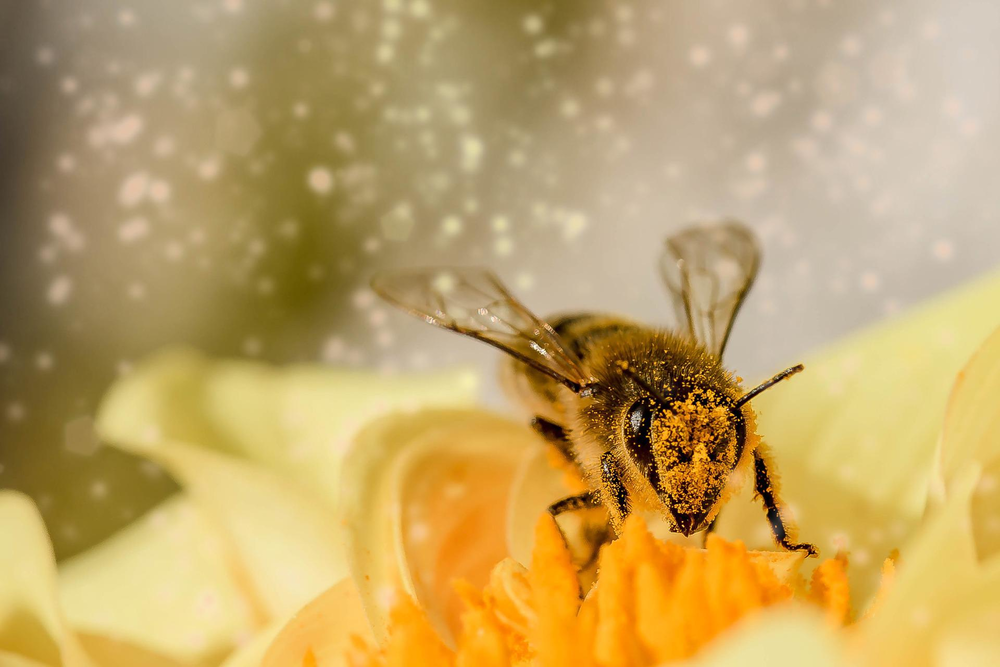pan-european assessment, monitoring, and mitigation of stressors on the health of bees
Access to pollen increases the lifespan of Varroa-infested bees by reversing faster maturation
Honey bees collect nectar and pollen to fulfil their nutritional needs. However, pollen can also be beneficial for the mitigation of the harmful effects of the parasitic mite Varroa destructor. Varroa infestations at the pupal stage influence the nutritional status of honey bees, compromising their natural physiological and behavioural maturation. This leads to an accelerated transition to foraging and consequently a shorter overall lifespan for the bee. Fortunately, access to pollen counteracts this accelerated transition. In order to better understand the beneficial effects of pollen on Varroa-infested bees, a recently-published PoshBee article tested the hypothesis that these beneficial effects are related to the hormonal control underpinning behavioural maturation.

Bee on a flower.
In the article called "The Beneficial Effect of Pollen on Varroa Infested Bees Depends on Its Influence on Behavioral Maturation Genes", published in Frontiers in Insect Science, PoshBee researchers analysed the expressions of genes associated with behavioural maturation in pollen-fed mite-infested bees. Their study showed that treatment with pollen increases the lifespan of mite-infested bees by reversing the faster maturation induced by the parasite at the gene expression level. Additionally, bees’ enhanced immune competence allows for a better response to the secondary infections triggered by Varroa destructor, which results in further reinforcement of the positive effects of pollen on the survival of honey bees in cases of mite infestation.
Read the full article here.